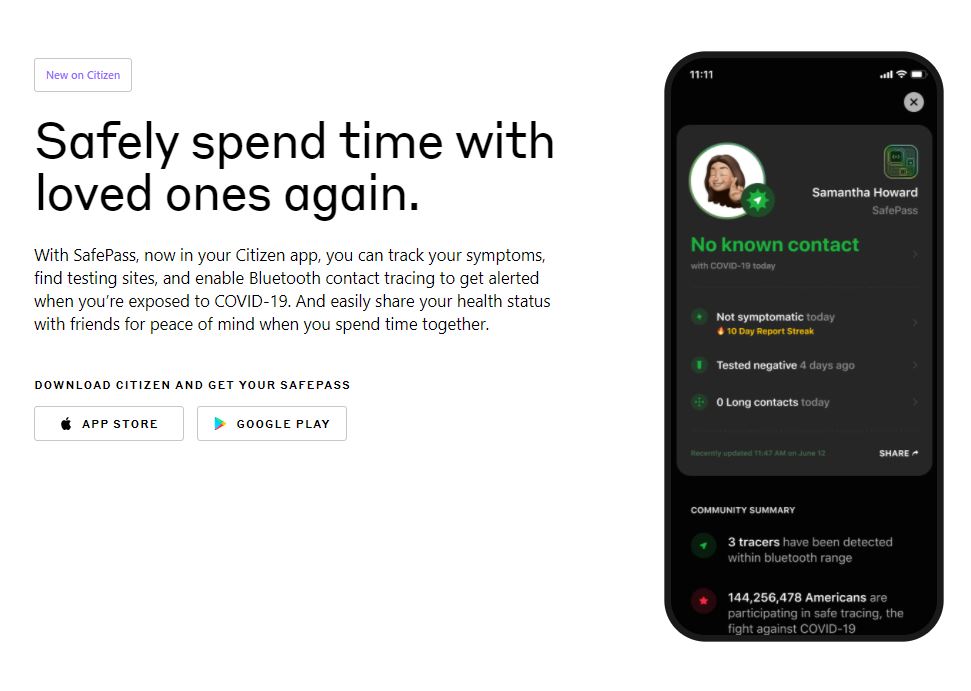
Public safety app Citizen has introduced a contact tracing app called SafePass, which can help identify the people a Covid-19 patient has been exposed to.
Users can activate the contact tracing app after downloading Citizen’s other app, called SafeTrace, which is used to summarize one’s Covid-19 health history. Citizen will send users at-home tests, and subsidize the cost, if the contact tracing app shows they may have been exposed.
Meanwhile, if a user wants to get hold of an at-home test without an indication they have been exposed, they can purchase one for $140 through Citizen.
The SafePass tool is part of the Citizen app. It automatically reveals the results of the Covid-19 tests the company distributes and lets users upload other tests themselves.
When a user’s test is positive, the app automatically and anonymously informs other users they have been near. To protect users’ privacy, information on contact tracing and one’s health is anonymized, encrypted, and stored for only 30 days.
Citizen started with about 600,000 users in March 2020 and now serves over 5 million users. Citizen first gave users with alerts from 911 data. The company’s analysts monitor and manage 911 communications that it uses to send out real-time updates. Citizen also has user-generated content and personal safety features.
Other contact tracing apps
The UK will use new contact tracing app with the help of Apple and Google. This will help UK detect and trace people that have been exposed to the coronavirus.
“We’ve agreed to join forces with Google and Apple, to bring the best bits of both systems together,” said Hancock.
The use of the U-turn involves a technical barrier, Hancock said at the daily Downing Street briefing in London.
“We found that our app works well on Android devices, but Apple software prevents iPhones being used effectively for contact-tracing unless you’re using Apple’s own technology,” he said.
NHSX, the innovation department of the National Health Service, initially planned to develop its own app without the assistance of Apple and Google.
However, after the UK started developing its app, Apple and Google unveiled their own product. Since the announcement, the UK has been developing two versions of the app, Hancock revealed.
“As it stands, our app won’t work because Apple won’t change their system,” Hancock noted. “But it can measure distance, and their app can’t measure distance well enough to a standard that we are satisfied with.”
In the new model, Hancock said the UK wants to integrate the NHSX algorithm and its work on distance calculations with Apple and Google’s product.
Contact tracing apps function when two individuals have been in close proximity to one another for a long time. If someone has the virus, the app will send an alert to people they have been in close contact with.
Apple and Google’s platform aims to provide citizens more privacy but it does not give epidemiologists the entire data.
Germany, Italy and Denmark have abandoned their so-called “centralized” approach that processes data on a state-controlled server. They welcome Apple and Google’s “dencentralized” approach, where data is analyzed on the handset itself, thereby reducing privacy issues.






